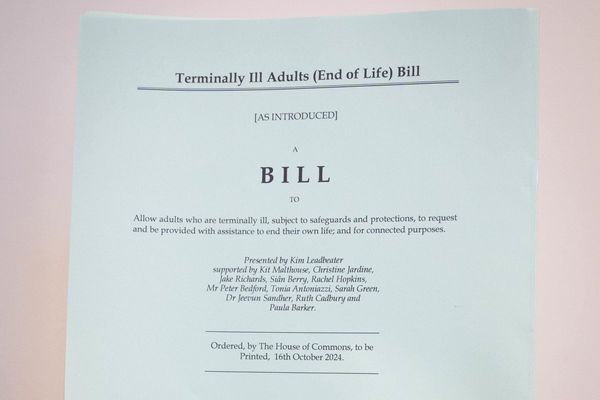
The World Bank has warned of the pending fiscal collapse of Palestine’s economy as a result of Israel’s war in Gaza, the withholding of Palestinian Authority (PA) taxes by the Israeli government, and the rapidly widening gap between the amount of revenue coming in and the amount needed to finance essential public expenditure.
“As of the end of 2023, this financing gap reached US$682 million. This gap is projected to double within the coming months, reaching up to US$1.2 billion,” the World Bank reported.
Israeli Finance Minister Bezalel Smotrich, an extremist, right-wing member of Prime Minister Benjamin Netanyahu’s government, has withheld tax funds as a punitive measure following the PA’s involvement in the International Criminal Court (ICC) possibly issuing arrest warrants against Netanyahu, Israeli Defence Minister Yoav Gallant and three Hamas leaders.
Smotrich also believed the PA encouraged several European countries to recognise the state of Palestine.
“At the last cabinet meeting, many ministers, including myself, raised an unequivocal demand for harsh punitive measures against the Palestinian Authority for its unilateral actions against Israel, including its pursuit of unilateral recognition and its support of legal cases against Israel in The Hague,” Smotrich wrote to Netanyahu.
This is the latest amount of PA taxes to be withheld by Smotrich. He has also withheld funds equivalent to the amount that he says the PA pays to Palestinian fighters and their families.
Ismat Quzmar from the Palestine Economic Policy Research Institute (MAS) in Ramallah said these tax revenues constituted between 60-65% of the total revenues for the Palestinian Authority.
“This greatly affects the PA’s ability to pay salaries to public employees, who comprise approximately 20% of those employed, and to pay for other services and contractors. The PA’s inability to meet its financial obligations towards employees and service providers sharply decreases public consumption, trade, and local production,” Quzmar told Crikey.
He added that the dire economic situation was worsened by Israel prohibiting Palestinians from working inside Israel, which accounted for another 20% of West Bank employment.
“For ordinary people, this economic shock comes in the form of reduced income, reduced spending, and the inability to make ends meet on a daily basis,” Quzmar said.
The fiscal crisis has been worsened by the war in Gaza with the Palestinian Minister of National Economy, Muhammad Al-Amoor, pointing out that the economy loses about US$20 million every day due to the complete cessation of production in the Gaza Strip and its disruption in the West Bank.
GDP dropped by more than 22% in the West Bank and more than 80% in Gaza during the period from October 23 to January 24, according to both the Palestine Central Bureau of Statistics (PCBS) and the World Bank’s ‘Impacts of the Conflict in the Middle East on the Palestinian Economy’ report.
The PCBS reported that the withholding of taxes, the cost of the war on Gaza and its repercussions in the West Bank — including increasing restrictions and tightening the stranglehold on the governorates of the territory, disconnecting communication and roads between the governorates and the obstruction of goods access from abroad — had cost the Palestinian economy over half a billion US dollars from October 2023 to January 2024.
According to the International Labour Organisation (ILO) the war, and Israel’s restrictive measures, have also led to 201,000 job losses in Gaza and 306,000 jobs lost in the West Bank in the first quarter of this year. Unemployment in Gaza was already high.
The economic woes of the Israeli-occupied territory predate the most recent war in Gaza. Quzmar told Crikey that historically, since 1967 when Israel occupied the West Bank and Gaza Strip, it had imposed a multitude of restrictions, including impediments to Palestinian economic development, hefty taxes, restrictions on building construction and movement, full control of imports and exports, and restrictions on agricultural activity. Restrictions were crippling the economy and limiting movement before October 7.
Quzmar said that not only had the Israeli occupation crippled Palestine’s economic development, it had actually led to its de-development, quoting American economist Sara Roy who has researched the issue.
The West Bank is divided into Areas A, B and C. Area C, comprising 60% of the territory, is reserved exclusively for illegal Israeli settlements, with Palestinians forbidden from building there.
The village of Kafr Qaddum, population 4,000, in the northern West Bank, sits among rolling, bucolic hills with roads snaking around orchards of olive trees and other agricultural crops.
“Four hundred hectares of village land were expropriated for building the Kedumim settlement near our village,” spokesman Murad Shteiwi told Crikey.
The road leading from the village to the closest city of Nablus, which passes Kedumim, was closed to the villagers for “security reasons”, thereby forcing them to travel a circuitous route around the settlement and lengthening the journey from 15km to 25km.
“All of the village families lost access to much of their crops. However, following the Gaza war, the situation has got much worse with nobody allowed to access any of their fields and the military checkpoints along the road to Nablus delaying people for additional hours,” Shteiwi said.
He said the economic damage to the village amounted to “tens of thousands of dollars”.







